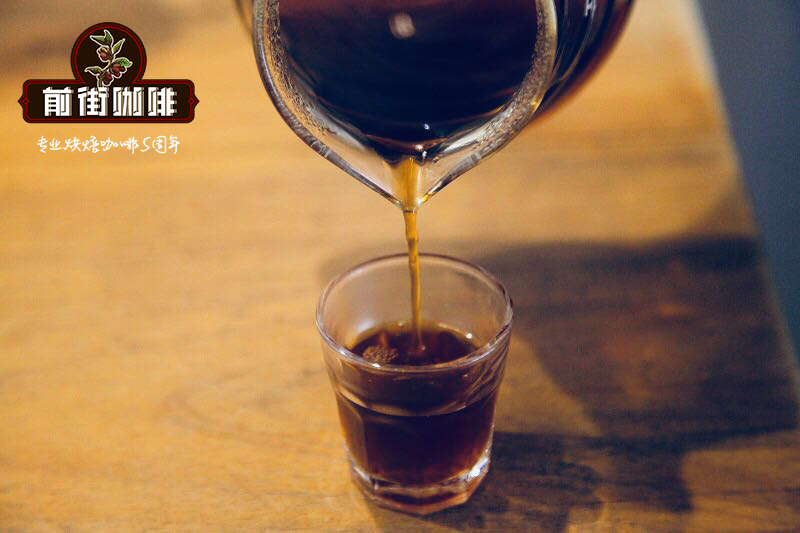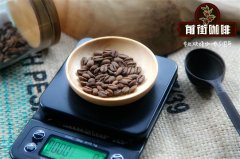Blue Mountain Coffee official website _ Blue Mountain Coffee Trademark dispute authentic Blue Mountain Coffee is mellow and sour
= "Blue Mountain Coffee official website" =

Professional coffee knowledge exchange more coffee bean information please follow the coffee workshop (Wechat official account cafe_style)
Blue Mountain Coffee "blossoms", and derives Blue Mountain "flavor" (style) and "mix" (blend). It is difficult to distinguish what is authentic. Ye Rong, who is known as the local coffee talent, points out that Blue Mountain coffee is fragrant and mellow, not strong, sweet and strong, with a little fruit and sour taste, and experts usually make purchases based on the organizational certification of the Jamaica Coffee Bureau (CIB).
The planting period is longer and the "Blue Mountain flavor" is nearly 5 times.
Ye Rong pointed out that the real Jamaican Blue Mountain coffee beans grow in the Blue Mountain Manor, which is more than 1000 meters high and has been shrouded in fog for a long time, you must obtain CIB certification; it is different from ordinary coffee beans for half a year, and the blue mountain coffee beans grow for as long as 10 months, and the price is also high. The price of a kilogram of Blue Mountain coffee beans ranges from 280yuan to 380yuan, which is nearly five times different from that of "Blue Mountain flavor" coffee beans.
Drinking a mouthful of strong coffee has become a trend of life and culture in recent years. Coffee from various famous places is popular in Hong Kong, and there has been a trademark dispute over Jamaican Blue Mountain Coffee recently. Some suppliers who have obtained the trademark patent of Jamaica's Blue Mountain Coffee (Jamaica BlueMountain R) have complained to the Hong Kong Customs about a large number of infringing goods on the market, including Blue Mountain coffee beans sold in Pacific Coffee and Great supermarkets, and questioned the use of trademark words without the authorization of the Jamaican authorities. Trade mark patent suppliers questioned that these products contravened the Trade descriptions Ordinance and related trade mark offences. Both Pacific Coffee and Great responded that it was lawful for the products to be supplied by authorized suppliers. Ming Pao reporter Zhang Weiming and Yu Wei
The coffee shop of Jamaica is blacklisted.
The Jamaica Coffee Authority (Coffee Industry Board), which controls the export of Blue Mountain Coffee, replied to this newspaper that it registered the word Jamaica Blue Mountain as a trademark in Jamaica and that only firms licensed by it could sell Jamaican Blue Mountain Coffee. The bureau pointed out by name that the blue mountain coffee beans sold by Pacific Coffee and the Zambra brand blue mountain coffee sold by Great supermarket will write to each other without the authorization of the bureau, accusing them of infringement and putting their products on the online blacklist.
Accused of infringement, Pacific Coffee Great claims the product is legal
Pacific Coffee responded that its Jamaican Blue Mountain coffee beans were supplied by a coffee roaster with a legal practice license in the United States, but could not provide more information on its suppliers to protect the company's interests. The company stressed that the Jamaican Blue Mountain coffee beans sold were grown in Jamaica and were legal. A spokesman for Watsons Group, the parent company of Great, pointed out that the supplier of Zambra products used Blue Mountain Coffee registered with Jamaica Coffee.
Lawyer: if it is parallel imports, the coffee shop should know.
Yang Mingyuan, a lawyer familiar with trademark law, points out that although the two companies are not authorized, there is still a chance that their coffee beans come from Jamaica. Such as balancing imported "parallel imports". The Coffee Bureau pointed out that due to the lack of further information, it was unknown whether the two companies had purchased coffee beans (that is, parallel imports) from an authorized supplier, and they could only comment on the terms and conditions of the supplier's authorization. however, in general, suppliers are required to notify the Bureau for overseas sales, but the Bureau has not been informed to question whether the two Hong Kong companies are authorized to sell Jamaican Blue Mountain Coffee.
The certification fee is 15600 yuan and the net profit is 1%.
Jim Coke, head of Hilmann Reinier Commodities, a franchisee in China, which was recognized by the coffee shop in May, pointed out that each franchisee has to pay a certification fee of US $2000 to US $10, 000 (HK $15600 to HK $78000) to the coffee shop, which can only be authorized by the authorities after nearly a year's certification process.
According to the Jamaica Coffee Bureau, there are only three franchisees in China and Hong Kong, and Coke's company is one of them. At present, he only sells Blue Mountain Coffee through online group buying. He thinks that the market is flooded with unauthorized Blue Mountain Coffee, which seriously affects his business. Therefore, he reported to the Customs and Excise Department that they violated the Trade descriptions Ordinance. According to the Customs and Excise Department, appropriate follow-up actions will be taken if there is an offence or infringement.
The trademark application has not been approved in Hong Kong
Our inspection of the trademark retrieval system of the intellectual property Department in Hong Kong shows that the application for trademark registration is still pending. The definition of a trademark in the Trade descriptions regulations refers to a trademark registered in any WTO member, of which Jamaica is a member. Section 9 (3) of the Ordinance states that it is an offence for a person to create a trade mark without the consent of the owner of the trade mark.
Mr Ronny Tong, SC, pointed out that the purpose of the Trade descriptions Ordinance was to protect consumers from misleading counterfeit goods, not to protect the rights and interests of trade mark owners. As the registration of trade marks in Hong Kong had not yet been completed, the Jamaican authorities could only request the Hong Kong Customs to enforce the law and failed to initiate civil proceedings under the Trade Marks Ordinance.
Important Notice :
前街咖啡 FrontStreet Coffee has moved to new addredd:
FrontStreet Coffee Address: 315,Donghua East Road,GuangZhou
Tel:020 38364473
- Prev

Ala derived Brazilian Kaduai Mundo Novo has an elegant and meticulous finish, long and multi-layered taste.
Professional coffee knowledge exchange more coffee bean information please follow Coffee Workshop (Wechat official account cafe_style) Mundo Novo New World, is a natural mating between Bourbon Bourbon and Sumatra Tibica Typica. Planted at high altitude, it has the characteristics of tolerance to high altitude climate, high immunity, resistance to diseases and insect pests, dense growth and planting, high yield and good flavor quality. Most
- Next

Jamaica Blue Mountain Coffee official website _ Blue Mountain Coffee Price query is Blue Mountain Coffee good?
= "Blue Mountain Coffee official website" = = Professional coffee knowledge exchange more coffee bean information please follow the coffee workshop (Wechat official account cafe_style) Jamaica was hit by Hurricane Hurricane Ivan in September 2004, resulting in a 40% reduction in the harvest of blue mountain beans. Since then, Jamaica has added a time dividing line term: pre-Ivan era or post-Ivan era Pre
Related
- Detailed explanation of Jadeite planting Land in Panamanian Jadeite Manor introduction to the grading system of Jadeite competitive bidding, Red bid, Green bid and Rose Summer
- Story of Coffee planting in Brenka region of Costa Rica Stonehenge Manor anaerobic heavy honey treatment of flavor mouth
- What's on the barrel of Blue Mountain Coffee beans?
- Can American coffee also pull flowers? How to use hot American style to pull out a good-looking pattern?
- Can you make a cold extract with coffee beans? What is the right proportion for cold-extracted coffee formula?
- Indonesian PWN Gold Mandrine Coffee Origin Features Flavor How to Chong? Mandolin coffee is American.
- A brief introduction to the flavor characteristics of Brazilian yellow bourbon coffee beans
- What is the effect of different water quality on the flavor of cold-extracted coffee? What kind of water is best for brewing coffee?
- Why do you think of Rose Summer whenever you mention Panamanian coffee?
- Introduction to the characteristics of authentic blue mountain coffee bean producing areas? What is the CIB Coffee Authority in Jamaica?

